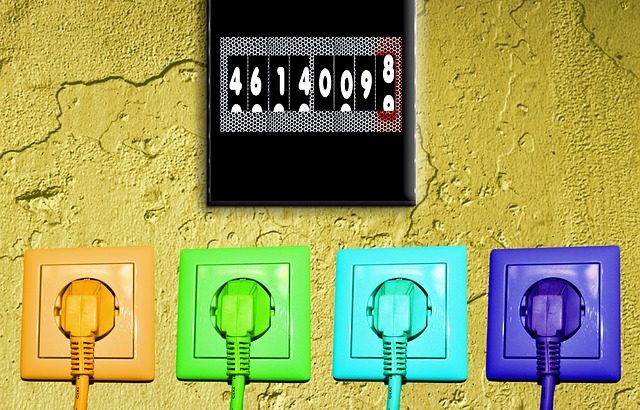Top Energy Consumption Culprits
For the reason that energy bills are one of the most costly recurring expenditures in any households, most homeowners have adapted particular energy-consumption techniques and strategies that help in decreasing power utilization. However, there are certain devices that are commonly overlooked and become the major culprits of top energy consumption. Although in most cases, power consumption is always higher during the winter season, it does not mean that heaters are the only major appliances that contribute to the budding energy bills.
Read Tips for Cutting Power Bill in Your Business.
Here are some top energy consumption culprits:
Lighting fixtures account about fifteen percent of the total yearly electricity consumption. For the reason that lighting cannot be sacrificed in all households and business establishments, the use of lighting technology enhancements such as CFL and LED becomes a hit to have an efficient and cheaper alternative. Modern lighting equipment such as solar tubes, skylights and motion detectors are also remarkable substitutes. Using oversized bulbs should not be tolerated because it will only result to waste of energy aside from producing harmful and unpleasant lighting effect.
Game consoles, set-top boxes, computers, televisions, DVD players, printers, copy machines, phone chargers, audio and visual systems are only some of the most common devices that consume power even when not in use. The electricity wasted by these devices while not being used is referred to as phantom power. The continuous display screen, standby power and the AC adapter feature of these gadgets are the major culprits of energy consumption. It is best to practice turning all of these devices when not in use to save future power expenses. Leaving gaming consoles running around the clock will not only amplify energy usage but negatively affects the performance of the system as well. Set-top boxes that are turned on can generate energy the same level with refrigerators. Make sure that they are unplugged when not in use to avoid drastic energy use. Even when these devices are shut down, when they are not unplugged, an active power light indicates that it is still drawing energy. AC adapters are also consuming power especially when they vibrate or give off heat. For those appliances that do not need to unplug, the use of power strip can be done to cluster devices so that they can be disconnected without meddling with their main purpose.
Certain appliances that we commonly use in the households are also major culprits in energy consumptions. Refrigerators, microwaves, washing machines, dishwashers, and ceiling fans are important domestic devices but can be used economically so power usage can be lessened. To save on energy and to have a most advantageous performance, refrigerators should maintain an internal temperature of about 36 degrees. If the seal around it starts to depreciate, it should be immediately replaced by a gasket to prevent cold air from escaping when the door is closed. Using the microwaves instead of the oven or stovetop burners when heating food is a better way, but they should be unplugged when not in use because they gorge up power to illuminate their clocks and keep the buttons on standby. When using the washing machine, have full loads so that the energy used will be worth it. Whenever appropriate, refrain from using the dryer, instead, air-dry the clothes outside the house. Run the dishwasher in economy mode and turn it off halfway through the drying cycle and allow the air to dry the dishes. Ceiling fans should be turned off when not in use. They cannot cool a room so they should not be left running around the clock.
Fully charged devices are also energy consumption culprits. Even if your devices reach 100% battery life, when the device is left charging, it is still burning wasted electricity. This will not benefit your gadget by adding extra charging life but only aids in consuming more energy. Lastly, heating, ventilation and air conditioning system accounts as the top energy consumption culprit. The best way to deal with HVAC to make it energy-efficient is through maintenance and reasonable upgrades. When HVAC filters are clogged and dirty, the filters should be immediately changed to prevent friction loss resulting in the increase in fuel consumption. During leakages, the ductwork should be instantly sealed to avoid loose connections and breeches. The thermostat is a very important mechanical device included in HVAC and therefore should be taken care of. When it is properly used, it can save up to 30% on both cooling and heating costs.
Energy-related matters are very important for any household. Energy fuels some of the basic needs of a home. It is imperative that it should be given enough attention. For the most part, especially during the commencement up to reducing energy usage, it is best to call on professional help. Registered electricians and other skilled professionals can certainly help in making sure that you have the safest and most efficient power consumption.
By simply acknowledging what particular appliances and devices consume so much energy and doing precautionary measures to prevent them from doing so, energy can be efficiently used and results in decreasing utility bills. There are still several ways on how to effectively reduce energy consumption. They can be exhausting, demanding and complicated at times but the effects are significantly remarkable. Saving the entire amount of the wasted energy in a household for a year can bring a family a good deal of investment or a notable heap of savings.
Call me on 0403 026 531 for electrical assistance.


[…] Read some Top Energy Consumption Culprits here. […]